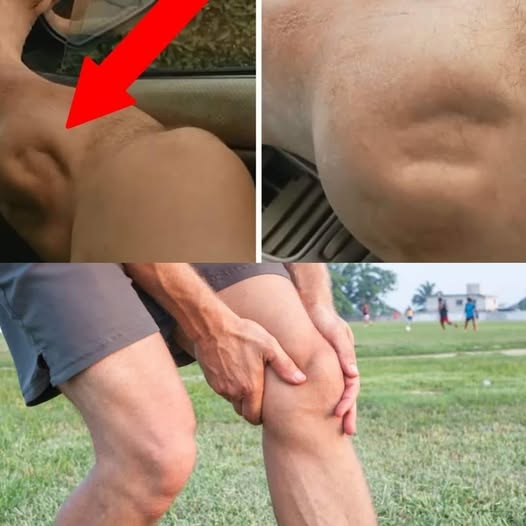How to Avoid Muscle Cramps: The quick, involuntary contractions or spasms that occur in one or more muscles are referred to as muscle cramps.
In addition to being highly painful, they often manifest themselves at the most inopportune moments, such as while one is exercising or when one is sleeping.
Your ability to manage and lessen the frequency of muscular cramps may be improved by gaining an understanding of what causes them and how to avoid them.
Here is a more in-depth look at the factors that lead to muscular cramps, as well as some successful measures for preventing them.
- A lack of water: In the event that your body loses an excessive amount of water, it may result in an imbalance in electrolytes, which include sodium, potassium, and calcium. These electrolytes are necessary for the normal functioning of your muscles. Muscle cramps are often brought on by dehydration, particularly when they occur during or after physical activity.
- Imbalance of Electrolytes Electrolytes are one of the most important components in the process of muscular contraction and relaxation. It is possible for muscular cramps to be caused by an imbalance, which may be the result of dehydration, an unhealthy diet, or excessive perspiration.
- Overuse or Strain: Muscle cramps may be caused by either overusing a muscle or stretching it beyond its normal range of motion when engaging in physical activity. Athletes and other persons who participate in strenuous activity without the appropriate preparation are prone to experiencing this condition.
- Poor Circulation of the Blood:
Muscle cramps may be brought on by insufficient blood supply to the muscles, which is often brought on by sitting or laying in the same posture for an extended period of time. Nighttime is the most common time for cramps to occur. - A deficit in vital minerals such as magnesium, potassium, or calcium might be a contributing factor in the development of muscular cramps. For proper muscle function and contraction, these minerals are absolutely necessary.
The Ways to Avoid Getting Muscle Cramps
- Maintain Your Hydration Be sure to consume a sufficient amount of water throughout the day, particularly before, during, and after physical activity. Maintaining an electrolyte balance and avoiding cramping are also benefits of drinking enough water.
- Keep a Diet That Is Well-Balanced Make sure that your diet include foods that are high in vital minerals such as potassium (for example, bananas and oranges), magnesium (for example, nuts and seeds), and calcium (for example, dairy products and leafy greens). A diet that is well-balanced is beneficial to the general health of the muscles.
- Stretching on a Regular Basis Stretching exercises should be included into your daily routine in order to develop more flexibility and lessen the tension in your muscles. Muscle cramps may be avoided by stretching both before and after physical activity.
- To prevent your muscles from being overworked It is important to exercise wisely by gradually increasing both the intensity and length of your exercises. Always be sure to warm up before you exercise and then cool down when you’re done.
- It is important to avoid sitting or laying down for lengthy periods of time in order to improve circulation. In order to enhance blood flow, it is important to take pauses and walk about and stretch your muscles.
- Consider Taking Supplements In the event that you have a suspicion of having a mineral deficit, you should discuss the possibility of taking supplements with your healthcare professional. It is possible to maintain the appropriate amounts of key minerals with the assistance of supplements.
Final Thoughts on How to Avoid Muscle Cramps
Although muscle cramps may be excruciating and inconvenient, it is possible to dramatically minimise the frequency of these cramps by gaining an awareness of their origins and implementing preventative actions. You can keep your muscles strong and reduce the likelihood of cramping by ensuring that you drink enough of water, eating a diet that is well-balanced, stretching on a regular basis, and exercising in a way that is appropriate. By incorporating these straightforward tactics into your daily routine, you will be able to live a life that is less cramped and more comfortable.

